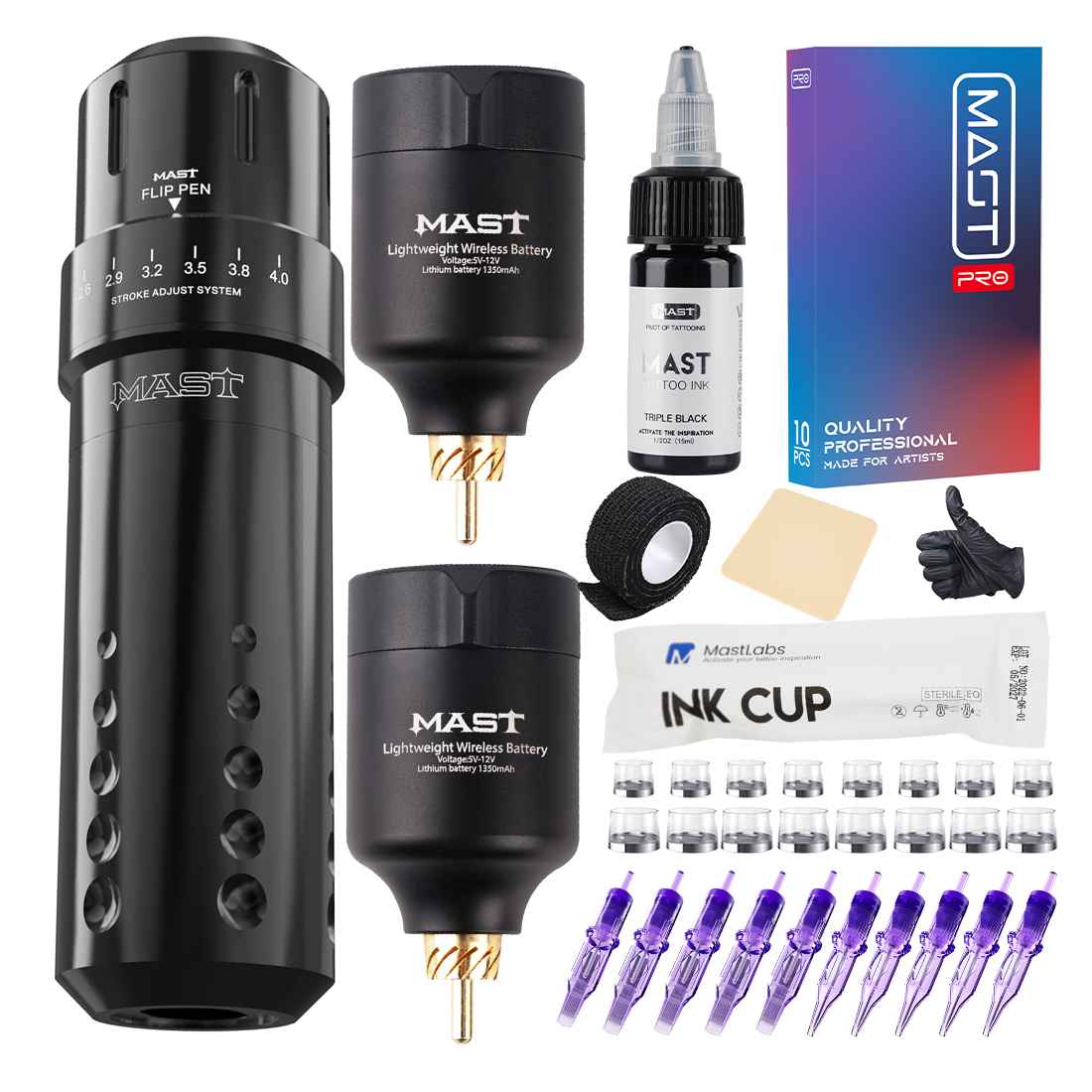Tattoos have become increasingly popular forms of self-expression and art.
While many people enjoy the process of getting inked, there are concerns regarding the potential risks involved.
One question that often arises is, “Can a tattoo needle hit a nerve?”.
In this article, we will explore the intricacies of tattooing and the possibility of nerve damage, providing insights into the factors that influence such occurrences and ways to minimize associated risks.
A Short Intro
Tattooing involves the insertion of a needle into the skin to deposit ink, creating a permanent design.
It is important to understand the complexity of the nervous system before addressing the potential interactions between tattoo needles and nerves.
The nervous system is a network of specialized cells that transmit signals between different parts of the body.
It consists of the central nervous system (brain and spinal cord) and the peripheral nervous system (nerves outside the central nervous system).
Nerves are responsible for relaying sensory information and coordinating motor functions.
Also Read: Is it safe to get a tattoo if I have a medical condition?
Can a Tattoo Needle Hit a Nerve?
To comprehend the possibility of a tattoo needle hitting a nerve, it is essential to understand the tattooing process.
Tattoo artists use a tattoo machine equipped with one or more needles that penetrate the skin repeatedly, depositing ink into the dermis, the second layer of the skin.
While it is relatively rare for a tattoo needle to directly hit a nerve, there is a slight possibility, particularly if the tattoo is being applied near nerve-rich areas of the body.
The chances of nerve damage increase if the needle goes too deep into the skin or if the artist lacks proper skills or experience.
Also Read: Do You Lose Blood During a Tattoo?
Factors Influencing Nerve Damage
Several factors play a role in determining the likelihood of nerve damage during a tattooing procedure.
The location and depth of the tattoo are significant considerations.
Nerves tend to be concentrated in certain areas of the body, such as the fingers, hands, feet, and face.
If the needle penetrates deeply into these regions, the risk of hitting a nerve increases.
The expertise of the tattoo artist is also crucial. Experienced artists are more familiar with the body’s anatomy and nerve distribution, allowing them to navigate the skin with greater precision.
Additionally, individual variations in nerve placement and distribution make it challenging to predict the exact locations of all nerves within a specific area.
Also Read: What Happens if a Tattoo Needle Goes Too Deep?
Signs and Symptoms of Nerve Damage
Nerve damage caused by a tattoo needle can result in various signs and symptoms.
Immediate effects may include sharp or shooting pain, while delayed effects might manifest as numbness or altered sensation in the tattooed area.
In some cases, motor dysfunction and muscle weakness may also occur.
It is important to note that not all sensations or discomfort experienced after getting a tattoo are indicative of nerve damage.
Mild pain, swelling, and redness are common in the initial stages of healing.
However, if these symptoms persist or are accompanied by unusual sensory or motor changes, seeking medical attention is advisable.
Reducing the Risk of Nerve Damage
To minimize the risk of nerve damage during tattooing, several precautions can be taken.
Choosing a reputable and experienced tattoo artist who prioritizes safety and hygiene is crucial.
Adequate communication with the artist about your concerns and any pre-existing medical conditions can help them adjust their technique accordingly.
Following proper aftercare instructions and monitoring the healing process are essential steps.
Regularly checking for any abnormal sensations or signs of nerve damage can prompt timely medical intervention, if needed.
Also Read: Can a Tattoo Needle Hit Bone?
Seeking Medical Attention
If you suspect nerve damage after getting a tattoo, it is important to consult a healthcare professional.
They can evaluate your symptoms, perform diagnostic tests, such as nerve conduction studies or imaging, and provide appropriate treatment options.
Early intervention can often lead to better outcomes and prevent further complications.
Conclusion
So, can a Tattoo Needle Hit a Nerve?
Well, while the likelihood of a tattoo needle hitting a nerve is relatively low, it is essential to understand the potential risks involved.
Factors such as tattoo location, artist’s skill, and individual anatomy can influence the chances of nerve damage.
By choosing a reputable artist, maintaining open communication, and prioritizing proper aftercare, individuals can minimize the risk further.
Responsible tattoo practices are vital to ensure both the aesthetic and physical well-being of those seeking tattoos.
FAQs
Is it normal to experience pain during the tattooing process?
Yes, some level of discomfort or pain is expected during the tattooing process. However, excessive or unbearable pain should be communicated to the tattoo artist.
Can nerve damage from a tattoo be reversed?
In some cases, nerve damage caused by a tattoo needle can improve over time with proper care and treatment.
However, it is crucial to seek medical advice for an accurate diagnosis and appropriate management.
Are certain areas of the body more prone to nerve damage during tattooing?
Yes, areas with a high concentration of nerves, such as the fingers, hands, feet, and face, carry a higher risk of nerve damage during tattooing.
How long does it take for nerve damage symptoms to appear after getting a tattoo?
Symptoms of nerve damage can vary, but they may appear immediately or several days after getting a tattoo.
If you notice any unusual sensations or motor changes, it is advisable to consult a healthcare professional.
Can I remove a tattoo if it causes nerve damage or discomfort?
If a tattoo causes nerve damage or persistent discomfort, various tattoo removal techniques are available.
It is recommended to consult a dermatologist or a tattoo removal specialist for personalized advice and guidance.






